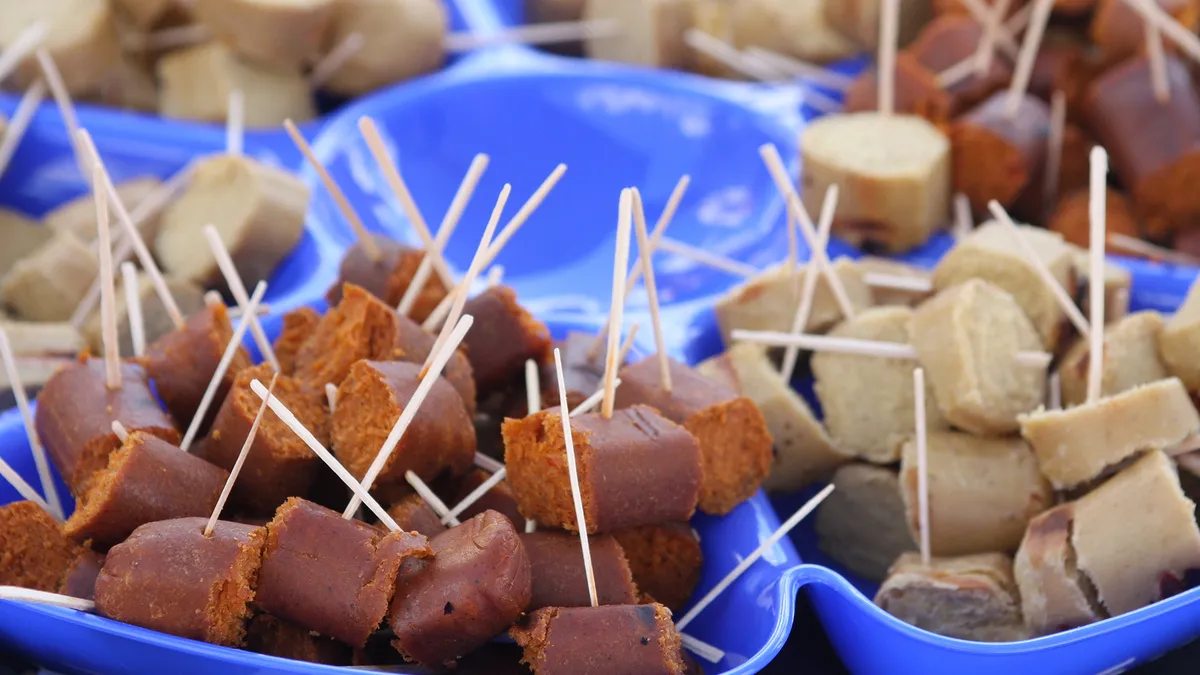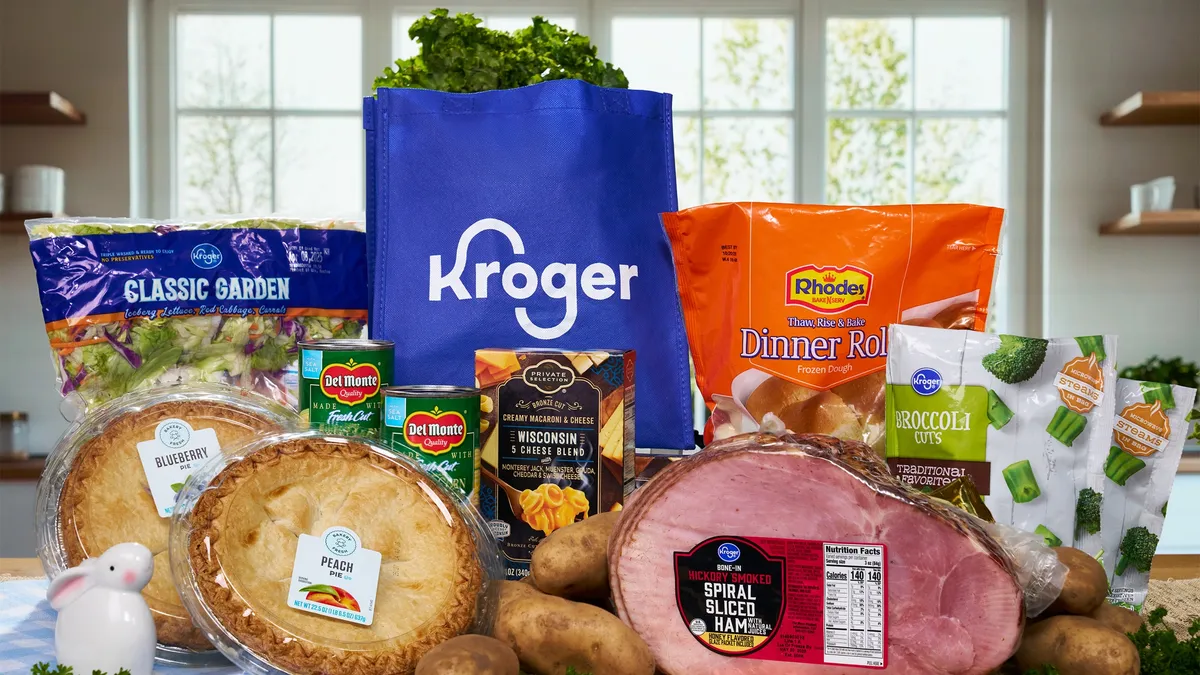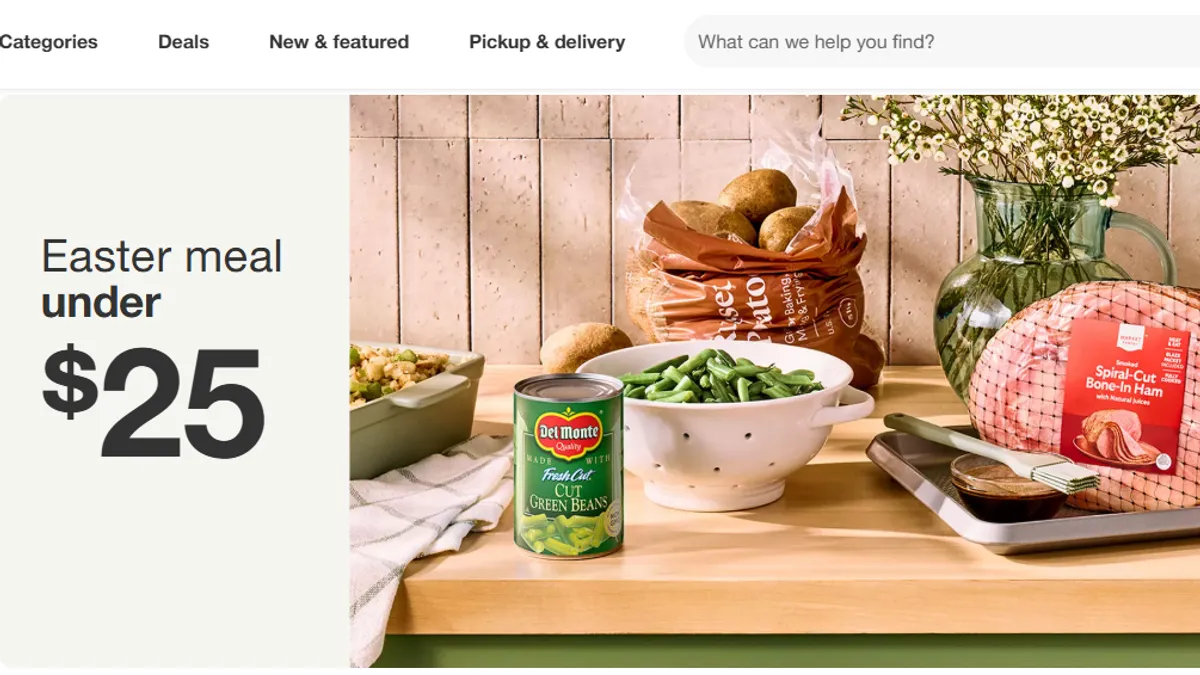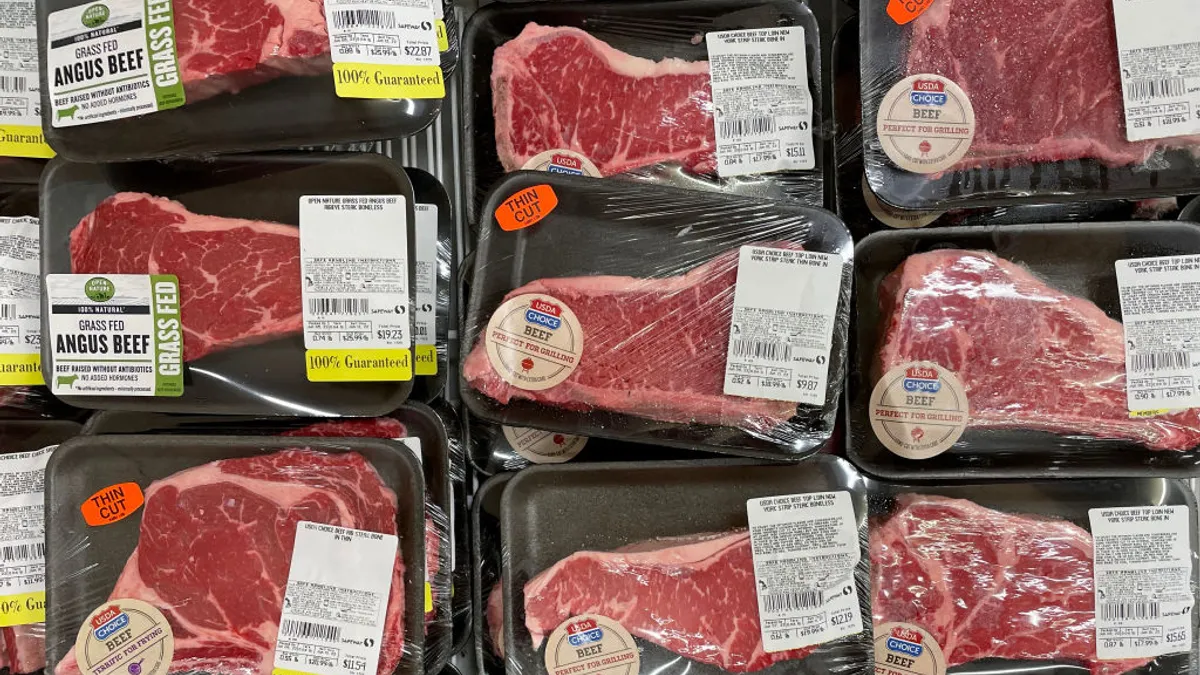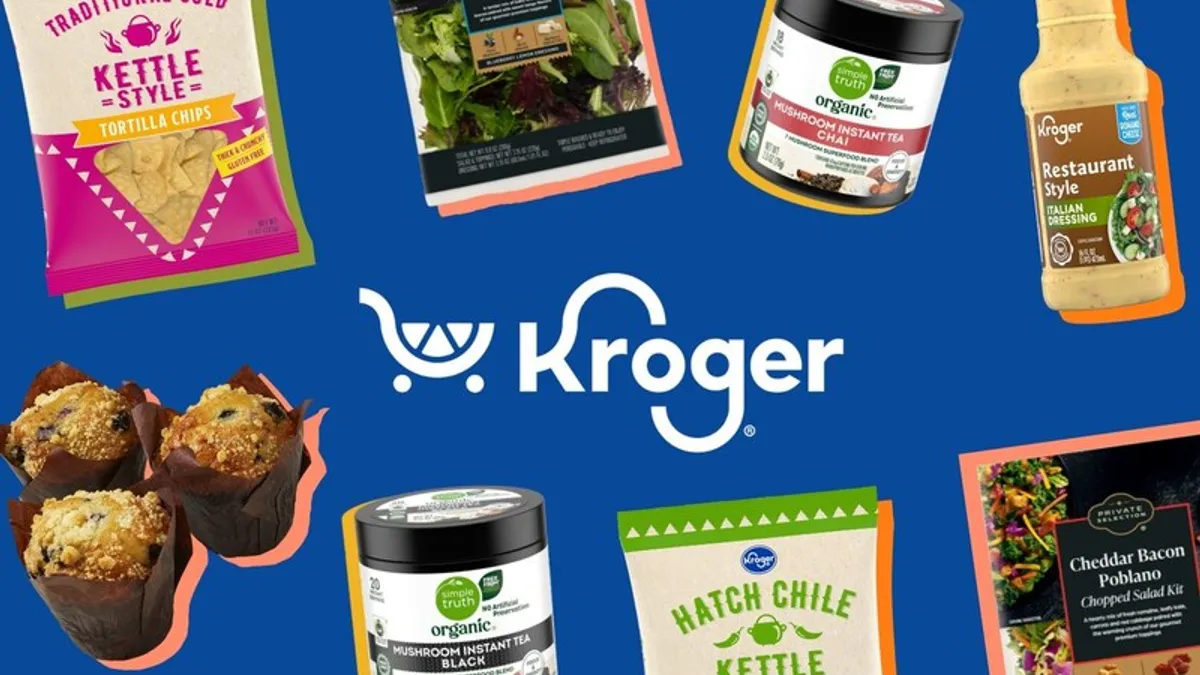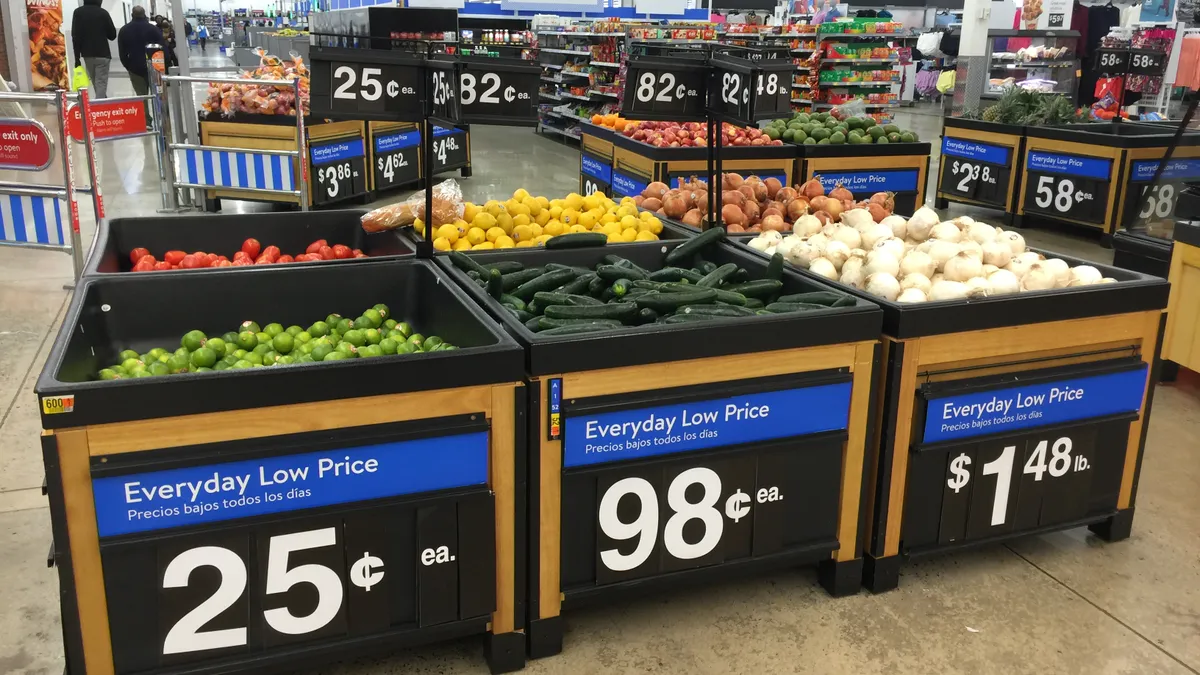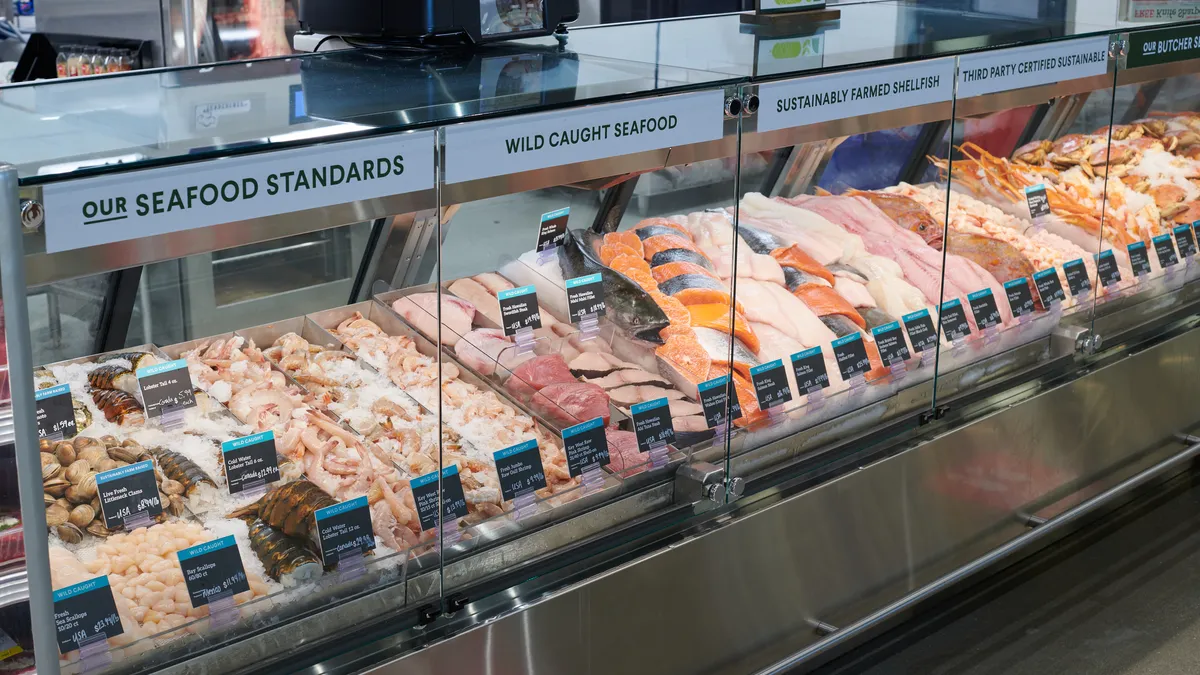From wine pours to small paper cups of granola, in-store sampling has become a way for retailers to introduce customers to new products. But just as the practice was building momentum across a wide range of grocers, from Whole Foods to H-E-B, it became a casualty of COVID-19.
Now, as retailers hone their safety practices and learn more about the virus, they along with sampling firms are evaluating ways to bring sampling back.
Last month, Costco’s chief financial officer, Richard Galanti, said the company will bring back its beloved sampling program this summer. The announcement, made during the company’s quarterly earnings call, was scant on details: "It’s needless to say not going to be where you go and just pick up an open sample with your fingers,” Galanti said.
But it sent a clear message to the industry that sampling isn’t dead, and could be effectively mobilized during the pandemic given the right circumstances and safety precautions.
While Costco is determined to bring back in-store sampling, other grocers are taking a wait-and-see approach. They’re mindful of the potential safety hazards, including the proper disposal of single-use cups, plates and other serving instruments; the safety of sampling workers; and the importance of discouraging crowding around sampling areas, which were formerly gathering spots for consumers.
“I think things may turn back to normal sometime, but I think it’d be a year away,” Arthur Ackles, vice president of merchandising and buying at Roche Bros., told Grocery Dive. “I think you’re not going to see much going on from a sampling standpoint in general to be honest with you.”
Running demos during a pandemic
While shutting down sampling services may reduce sales on certain products for retailers, it has devastated sampling companies, many of which have closed up shop due to COVID-19, according to Jesse de Agustin, CEO of EDS Strategy.
But some have figured out a way to offer demo services that still push sales for retailers and offer an “experience” for shoppers without putting them at risk, he noted.
EDS Strategy has gotten back into store demos by offering “dry demos,” which involve handing out a small prepackaged sample, talking to customers and distributing coupons. EDS workers all wear masks, gloves and caps, de Agustin said.
“Instead of making the oatmeal, we can give them a packet of the oatmeal that they can make at home and then offer a coupon to encourage a purchase of a full box,” said de Agustin.
Sam Miller, founder of Phoodie Marketing, a field marketing agency, also believes that retailers and brands can continue to turn inventory by having a representative hand out coupons. If they want to be cost-efficient, retailers and brands could even forego a demonstrator altogether and attach a free product coupon to the shelf next to the product, Miller noted.
But many grocery shoppers are turning to online shopping and opting out of going to the store, which makes introducing new products more difficult.
In order to cater to the influx of e-commerce shoppers, Miller says offering online samples is something brands are turning to. Direct-to-consumer companies frequently offer free samples inside customer orders, or send a sample to consumers and pay for shipping. Instacart shoppers insert samples like coffee and cleaning supplies from the e-commerce company's brand partners in customer orders.
De Agustin said some companies are dabbling in virtual demos, but that he doesn't see the practice taking off.
“We have seen virtual demos happening, but we think that’s sort of desperate because it’s really hard to translate that experience online,” said de Agustin.
“Instead of making the oatmeal, we can give them a packet of the oatmeal that they can make at home and then offer a coupon to encourage a purchase of a full box.”

Jesse de Agustin
CEO, EDS Strategy
Retailers weigh their options
Retailers and sampling companies both agree that product demos and live sampling will eventually return, but it will likely be a while before the pre-COVID-19 experience comes back.
De Agustin said EDS Strategy has had two grocers reach out to them about doing in-house demos that involve handing out live samples, including H Mart and another major U.S. grocer the company can’t disclose.
“If demos were going away, those retailers would not be doing their due diligence and finding sampling companies,” said de Agustin.
Many other grocers are consulting with local health officials and weighing various options. Most seem interested in dry sampling rather than spot demos. A representative from Central Market, an upscale grocer owned by H-E-B that does a lot of in-store sampling, recently told The Dallas Morning News that it's evaluating whether lidded cups, plastic bags, blister packs or some other form of packaging is best to hold samples. Market Street, which operates 18 stores in Texas, told the paper it's testing packaged samples in stores this month.
Roche Bros is still waiting for feedback from local health officials and keeping an eye on the virus’s evolution, Ackles said. Massachusetts currently does not allow sampling in any form inside grocery stores.
Ackles said he’s not sure if live sampling will return to Roche Bros. before a vaccine is available, given safety concerns and consumer reluctance to linger in stores. If it does return, or if the retailer decides to implement a modified version like dry sampling, the first step will be to have demonstrators practice social distancing and proper sanitation practices. They will need to wash their hands frequently, wear masks and change out gloves after every customer.
Ackles added that customers need to feel safe when consuming samples and won’t force the comeback if they don’t.
“I do think at some point, sampling will return, he said. “But I don’t know if self-serve will be anytime soon.”
Miller said that despite the uptick in retailer interest, he’s prepared for a long-term slowdown in his sampling business
“Our hope is that in the long-term things will go back to normal,” he said. “We're not sure if the actual demo will be back even in January of next year. We're planning for this to be a 12-to-18-month halt in our business.”



